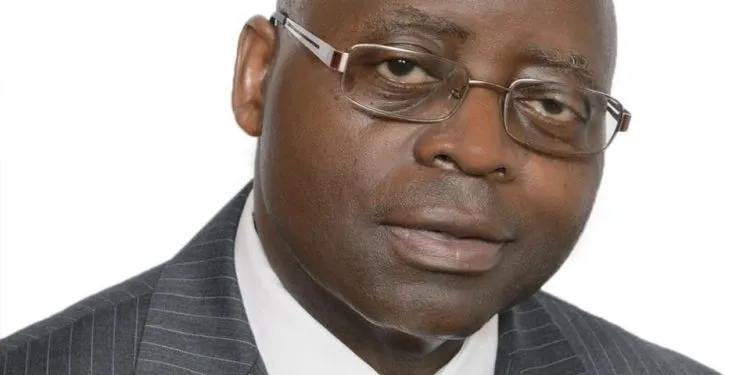By Tata Mbunwe
“Cameroonians should not think that the solution to their problem is going to come from outside. The international community is prepared to help us. But we have to be at the helm of things and they will come to help us,” Dr. Munzu
Dr. Simon Munzu, former United Nations Assistant Secretary-General, has said Ambazonia separatists should give up the armed struggle for independence and work towards negotiation and dialogue.
In an interview with My Media Prime TV on Wednesday, May 3, Dr. Munzu said it is irrational for them to think the Cameroon government will want to divide the nation by granting them independence.
He also termed separatist leaders “adventurers”, who have usurped power to push forth an agenda they have been hatching long before the current crisis broke out in 2016.
“The separatists have to give up their illusion of a fight for so-called independence and accept that the solution to this problem can only be through negotiation and they should come honestly and in good faith to the negotiation table,” he said.
“The separatists, as I said earlier, have to change their position – because they don’t expect the Cameroon Government or the regime in Yaounde to accept that our country be broken up. It is our country. We formed it together in 1961,” he added.
Just before the crisis turned into an armed conflict in 2017, Dr. Munzu said he and other renowned elite had advised the separatists to abandon the arms agenda because war would not take the Anglophone people anywhere. But this was never heeded.
Almost seven years later, thousands have been killed in the conflict and there seems no solution in view.
Talking about why the crisis has been unresolved till now, he blamed the Cameroon Government’s bad faith in handling the crisis, the separatists’ lack of concern for the population, and the Anglophone people’s indifference towards what has been going on.
Scholars like Munzu believe the government’s denial of the existence of the Anglophone Problem and the subsequent imprisonment of Anglophone leaders caused the armed conflict.
Government’s Denial of Anglophone Problem
Historians and scholars say what is today called the Anglophone Crisis stemmed from the Anglophone Problem.
In April 1993, Dr. Simon Munzu teamed up with other Anglophone elite – including Dr. Carlson Anyangwe and Barrister Ekontang Elad – to organise the first-ever All Anglophone Conference in Buea.
The conclave aimed at discussing the Anglophone Problem and to table proposals to the government.
These proposals were contained in a document that became known as the Buea Declaration, among which was the call for a return to a federal system of government.
But the government refused to acknowledge there was a problem and rather began hunting the AAC leaders.
“We sent many petitions, letters, resolutions on all of that to the government in Yaounde. Now, an honest and sensible Government would have admitted that we, Anglophones, were right in doing what we were doing, in calling for what we were calling. And met us at a conference to find out what exactly was the nature of this problem and how to resolve it. If they did that back in 1993, 1994, 1995 all of what we’re experiencing today would not have happened,” Dr Munzu said.
He added: “Our government has to recognise that what has been going on in the Northwest and Southwest is not normal, should not have happened in the first place. A government does not engage its troops to go and fight and kill its own citizens when it has the possibility of engaging in a negotiation. So the government has to change its attitude.”
After working with the United Nations for several years, Dr. Munzu said the international community cannot resolve the Anglophone Crisis.
The solution, he said, lies with the Cameroonian people.
“Cameroonians should not think that the solution to their problem is going to come from outside. The international community is prepared to help us. But we have to be at the helm of things and they will come to help us.”
His outings came a few days after America’s former Assistant Secretary of State for Africa, Tibor Nagy, also said the international community cannot resolve the crisis in Cameroon.



